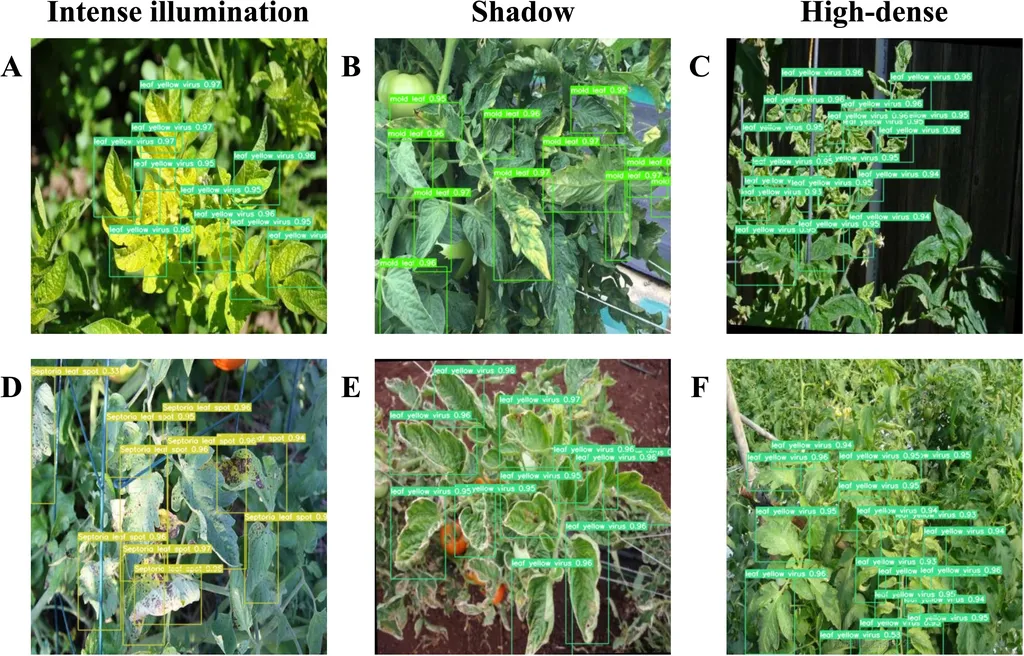In the ever-evolving landscape of smart agriculture, a groundbreaking development has emerged from the School of Computer and Data Science at Henan University of Urban Construction. Laixiang Xu and his team have introduced a novel deep learning model, the Multi-Head Latent and Self-Attention (MLSA) network, designed to revolutionize the identification of tomato leaf diseases. This innovation addresses critical challenges in the agriculture sector, offering a promising solution to enhance crop quality and yield.
Tomatoes, a staple in global agriculture, are highly susceptible to leaf diseases that can significantly impact their quality and market value. Traditional methods of disease identification often fall short due to difficulties in extracting multi-scale disease features and capturing global characteristics. The MLSA model, however, leverages advanced attention mechanisms to overcome these limitations. “Our model integrates multi-head latent and self-attention mechanisms, which enhance the capture of both local and global features,” explains Laixiang Xu. “This dual approach not only improves recognition accuracy but also makes the model more robust against noise.”
The MLSA model is built on an enhanced AlexNet, a well-known deep learning architecture. By optimizing AlexNet, the researchers have deepened the feature extraction process, allowing for more precise disease identification. The inclusion of the early stop mechanism further refines the model’s classification performance, ensuring high accuracy and efficiency. “The experimental results are truly impressive,” Xu adds. “Our model achieved an identification accuracy of 99.47% with 16.34 M parameters, outperforming state-of-the-art algorithms like EfficientNet-B0, MobileOne-S0, and OverLoCK-B.”
The implications for the agriculture sector are profound. Accurate and rapid disease identification can lead to timely interventions, reducing crop losses and improving overall yield. This is particularly crucial for commercial farmers who rely on consistent crop quality to meet market demands. The MLSA model’s faster computation speed and stronger generalization ability make it an ideal candidate for deployment on edge computing devices, further enhancing its practical applicability.
As the agriculture industry continues to embrace smart technologies, the MLSA model represents a significant step forward. Its ability to accurately identify tomato leaf diseases with high precision and efficiency opens new avenues for precision agriculture. “This research has wide-ranging promotional significance and application potential in smart agriculture,” Xu notes. “It paves the way for more advanced and efficient disease management strategies.”
The study was published in the journal ‘Smart Agricultural Technology’, highlighting its relevance and impact on the field. As the agriculture sector continues to evolve, innovations like the MLSA model will play a pivotal role in shaping the future of smart farming. With its potential to enhance disease identification and improve crop quality, this research offers a glimpse into the transformative power of deep learning in agriculture.

